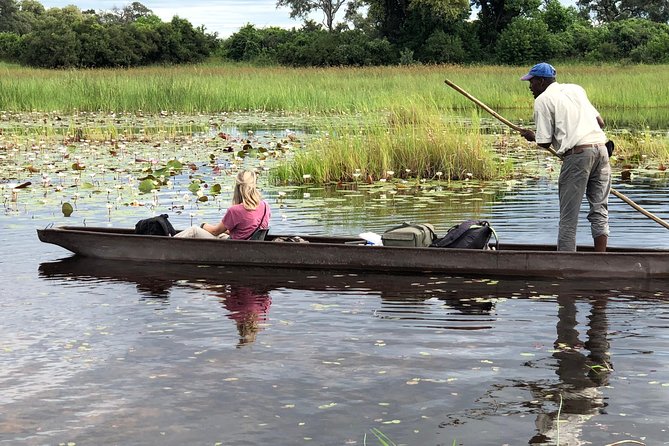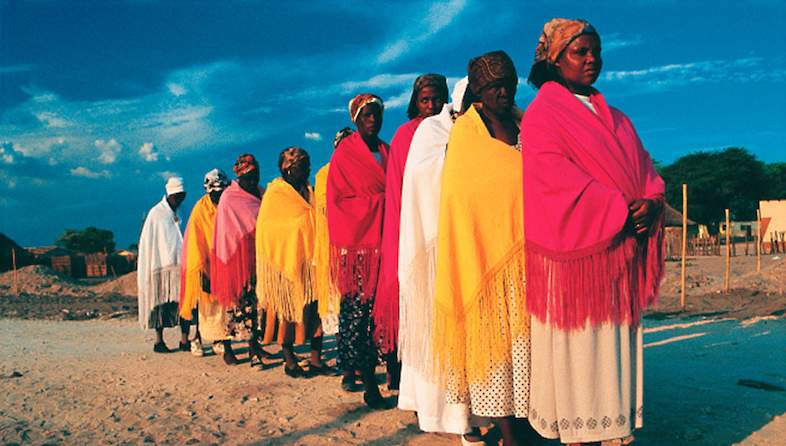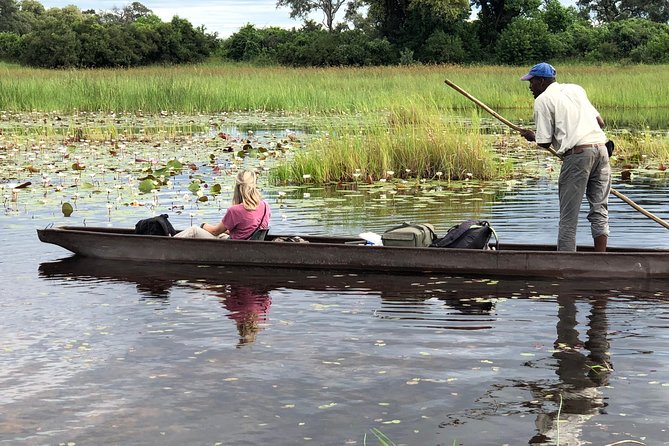Okavango Awakening: A Biologist's Journey Through Botswana's Emerald Jewel

The Cessna banked sharply, offering my first unobstructed view of the Okavango Delta. Below, a tapestry of emerald and sapphire unfolded – a stark contrast to the arid Kalahari sands I’d just flown over. Stepping onto the dusty airstrip, the air hit me – warm, humid, and thick with the scent of wildness. The sun beat down, yet a gentle breeze carried the promise of adventure. The buzz of insects, the distant calls of birds, and the sheer vastness of the landscape created an anticipatory hum. My mission: to delve into the heart of this unique ecosystem, document its incredible biodiversity, and understand how responsible tourism plays a vital role in its conservation. This was more than just a trip; it was an awakening.
Mokoro Safari: Whispers on the Water
There's no better way to truly experience the Okavango than from the seat of a mokoro, a traditional dugout canoe. My poler, a man named Kebonye with generations of Delta knowledge etched on his face, guided us effortlessly through the narrow waterways. His movements were fluid and silent, pushing the mokoro forward with practiced ease. The low vantage point offered a completely different perspective. We glided past towering papyrus reeds that whispered secrets in the breeze. The air was still, broken only by the gentle lapping of water against the hull.
A flash of iridescent blue caught my eye – a malachite kingfisher perched on a reed, its gaze fixed on the water below. Moments later, it darted down, emerging with a shimmering fish in its beak. The water lilies, scattered like jewels across the water's surface, released a delicate, sweet fragrance that filled the air. In the distance, I heard the distinctive call of an African fish eagle, a sound that instantly transported me to the heart of Africa. This was more than just a safari; it was an immersion, a chance to connect with the Delta on a deeply personal level.
Walking with Carmine Bee-Eaters
Swapping the mokoro for my own two feet, I embarked on a walking safari, eager to explore the smaller details of the Delta landscape. The Kalahari sand felt warm and soft beneath my boots as we approached a riverbank teeming with life. Here, a vibrant colony of carmine bee-eaters had established their nests, burrowing into the sandy cliffs.

The air buzzed with their activity as they swooped and dived, catching insects mid-air with incredible precision. Their vibrant colors – a striking contrast against the earth tones of the bank – were a photographer's dream. Beyond the bee-eater colony, I spotted a lilac-breasted roller, its plumage a kaleidoscope of blues, greens, and purples. The presence of these diverse bird species was a testament to the healthy state of the Okavango ecosystem, a vital sign that conservation efforts are making a difference. The sun beat down on my skin, a reminder of the raw, untamed beauty of Africa.
Game Drives and the Wild Dog's Call
No trip to the Okavango is complete without a game drive. While the prospect of seeing the Big Five is always exciting, my heart was set on encountering one of the Delta's most endangered inhabitants: the African wild dog. The Okavango boasts one of the highest concentrations of these incredible animals, making it a crucial stronghold for their survival.
The anticipation was palpable as we tracked a pack through the bush, following their faint tracks in the sand and listening for their distinctive calls. Then, suddenly, there they were – a blur of mottled fur and boundless energy. We watched, breathless, as they launched into a coordinated hunt, their speed and agility a marvel to behold. The adrenaline rush of witnessing such a primal scene was unforgettable. Back at camp that evening, gathered around a crackling campfire, the air was filled with the scent of wild sage. As darkness enveloped the Delta, the distant roar of a lion echoed through the night, a reminder of the wildness that surrounds you.

A Village Visit: Culture and Conservation
Understanding the human element of the Okavango is just as important as appreciating its wildlife. I had the privilege of visiting a local Bayei village, where I was warmly welcomed and invited to learn about their traditional way of life. Their connection to the Delta is profound, their livelihoods intricately linked to its health and abundance. Sustainable tourism plays a vital role in supporting these communities, providing them with income and incentives to protect the natural resources they depend on. It's crucial that we, as travelers, support local communities and respect their cultural heritage, ensuring that they benefit directly from tourism activities.
Flavors of Botswana: A Culinary Journey
The Okavango experience extends beyond wildlife and landscapes; it also includes the unique flavors of Botswana. I savored traditional dishes like Seswaa, a slowly pounded and simmered beef that melts in your mouth, and Morogo, a delicious wild spinach dish. Ting, a fermented sorghum porridge, offered a unique and surprisingly refreshing taste. And, of course, no evening was complete without enjoying a cold St Louis Export beer while watching the sun dip below the horizon, painting the sky in fiery hues.
Ethical Considerations: Protecting the Delta's Future
The Okavango Delta is a fragile ecosystem, and tourism, if not managed responsibly, can have a significant impact. It’s vital to choose eco-friendly tour operators who prioritize sustainability and minimize their environmental footprint. This includes reducing water usage, implementing responsible waste disposal practices, and limiting the impact of vehicles on the landscape. Supporting local conservation efforts is also crucial. By making conscious choices about where we travel and who we support, we can help ensure that the Okavango remains a vibrant and healthy ecosystem for generations to come.
Conclusion
My journey through the Okavango Delta was a transformative experience, an awakening to the beauty, biodiversity, and cultural significance of this extraordinary place. It's a place that demands respect, a place that inspires conservation, and a place that leaves an indelible mark on your soul. Let's all do our part to protect this emerald jewel. I urge you to support the vital work of the Botswana Predator Conservation Trust and the Okavango Community Trust. Together, we can ensure that the Okavango continues to thrive.